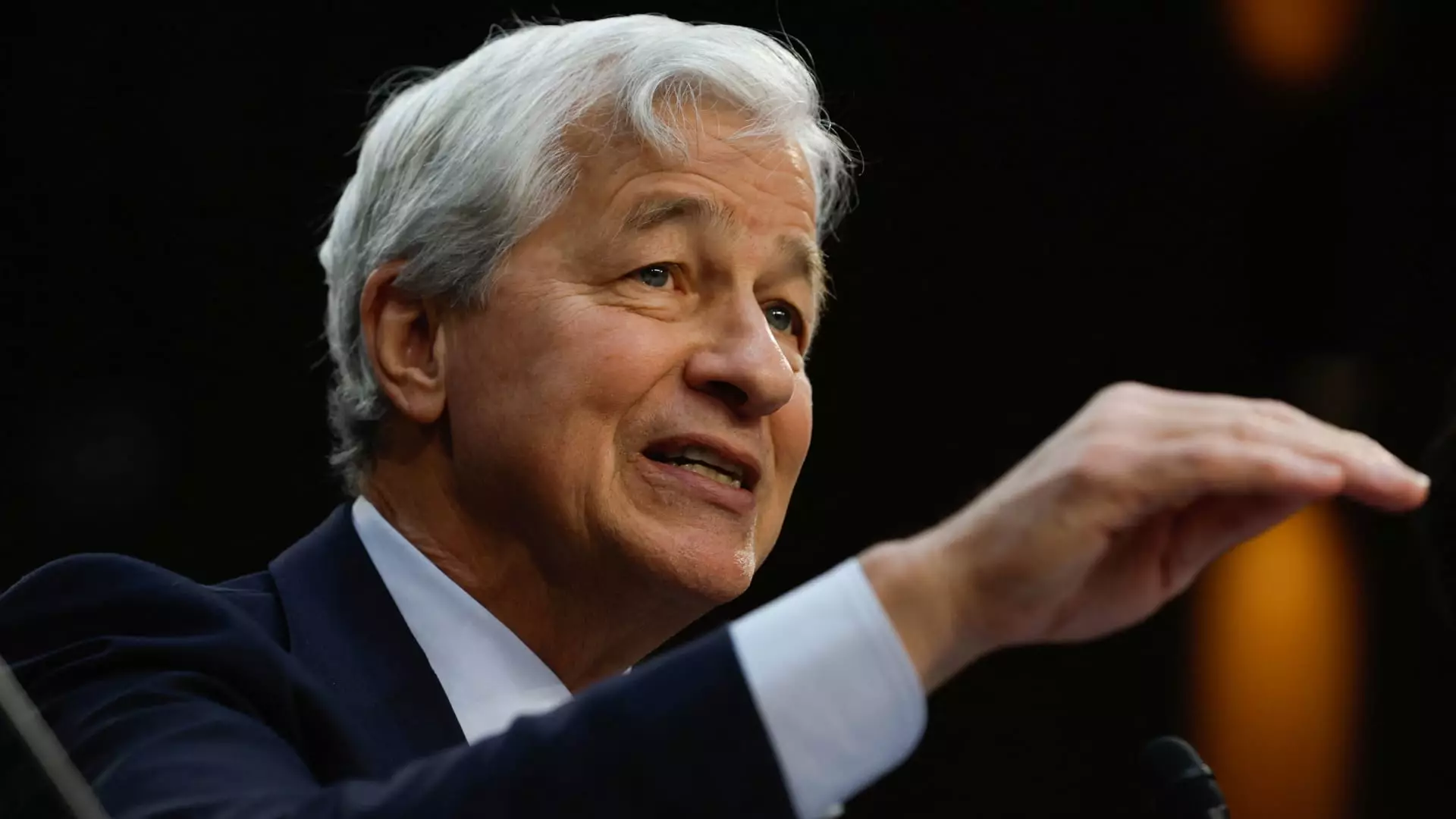In the swirling chaos of trade negotiations, corporate America braces itself for an inevitable downturn in earnings projections. Jamie Dimon, the astute CEO of JPMorgan Chase, has articulated a sober outlook amidst the turbulence instigated by tariff discussions initiated under President Donald Trump. On a recent earnings call, the tension in the corporate landscape became palpable, as Dimon anticipated a downward revision in S&P 500 earnings estimates. With a reduction anticipated from a hoped-for growth of 5% to potential stagnation or even contraction, this moment signifies a critical juncture for numerous firms grappling with an unpredictable economic environment. The crux of the issue lies not just in numbers but in the ripple effect this uncertainty creates across corporate strategies.
The Ripple Effect on Corporate Guidance
Dimon’s insights reveal a keen awareness of the broader implications of trade volatility. He remarked on a trend where companies are beginning to eschew guidance altogether, reflecting palpable hesitance in the marketplace. This abandonment of corporate forecasting can be attributed to a loss of confidence as businesses grapple with external variables that drastically affect their operations. According to reports, analysts have slashed S&P 500 earnings estimates by upwards of 5%. Such retractions not only indicate a loss of predictability but also highlight the psychological impacts of trade tensions. Companies are starting to prioritize adaptability over ambitious long-term growth strategies, a shift indicative of a more reactive mindset than a proactive one.
Investment Hesitance: A Wait-and-See Approach
As reported by Dimon and CFO Jeremy Barnum, the prevailing atmosphere has precipitated a significant pullback in investments and mergers, illustrating a collective retreat into caution. Companies are expressing a desire to maintain a conservative stance, as they navigate treacherous waters marked by shifting trade policies. The protective instinct extends beyond corporate giants to middle-market enterprises, who are equally reluctant to engage in significant dealings. This cautious approach inadvertently stifles potential innovation and collaboration, embodying the dilemma faced by many businesses during these precarious times.
Consumer Behavior in Flux
Interestingly, while corporate entities tighten their belts, consumers have paradoxically shown signs of resilience. In the first quarter, data suggests that consumer spending remained robust, potentially driven by the fear of impending price increases due to tariffs. This consumer behavior illustrates a dynamic interplay between the microeconomic decisions of individuals and the broader macroeconomic outlook shaped by policy uncertainty. It raises critical questions about how long this consumer buoyancy can last in the face of an increasingly precarious economic forecast.
Charting a Course Through Uncertainty
The current corporate environment epitomizes the challenges posed by policy ambiguity. Industry leaders like Dimon and Barnum emphasize a stark reality: the inability to plan effectively for the future hinders not only corporate growth but also broader economic stability. As businesses opt for short-term adaptations rather than long-term strategic investments, a critical question lingers: can this temporary caution serve as a catalyst for more profound innovation in response to the challenges of an unstable trade environment? In an age where adaptability is key, the corporate world finds itself at a daunting crossroads, forced to navigate the uncertainties that loom over it.

